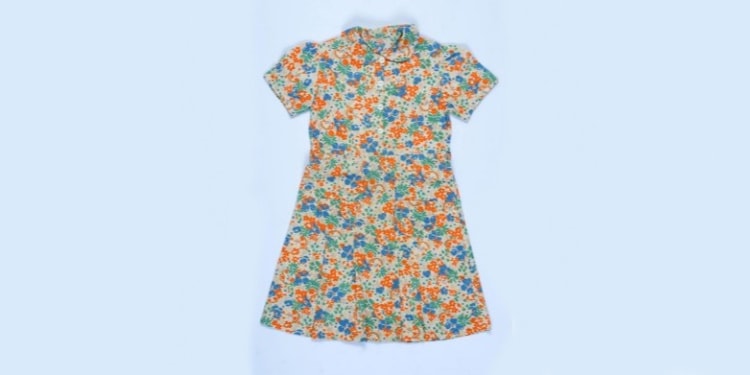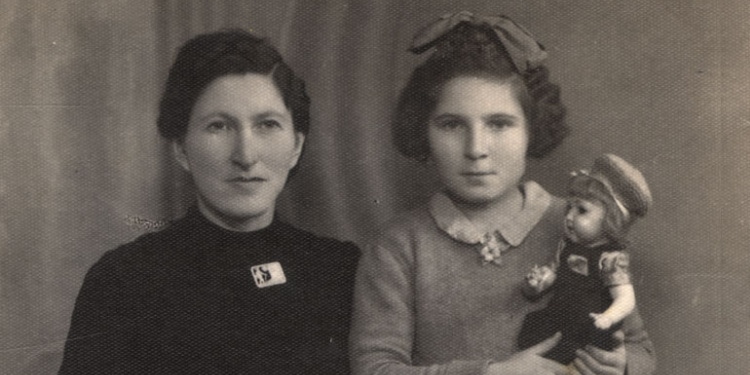A Dress for Basia
Stand for Israel | February 6, 2023

Born in Poland to a Jewish couple, Leon and Hava Klig, shortly before WWII began, little Basia wasn’t even five when she and her mother were deported to the Warsaw Ghetto. Leon was sent to a forced labor camp, but managed to sneak into the ghetto to be with his beloved wife and child. A short while later, the three managed to escape the ghetto.
But life on the run wasn’t any easier than living in the ghetto. It could hardly be called living at all. Between the constant threat of being caught by the Nazis, as well as the starvation facing the small family, Leon couldn’t handle this life anymore, and took his own.

Alone now with five-year-old Basia, Hava did her best to keep the girl safe. During the summer the two hid in haystacks. During the winter they sheltered in whatever pigsties or abandoned outbuildings they could find. The seasons turned their clothes to rags. Their shoes wore out from life on the run, and they were forced to wrap their bare feet in newspaper, hardly protection from the ice and snow.
At last, Hava and Basia were taken in by an elderly Christian widow, Stanislawa Pacek. Despite constant threats from lurking Nazis and snooping neighbors, Stanislawa hid the two until the end of the war.
And once the war ended, Basia and Hava stayed on Stanislawa’s farm, Hava hoping to work there to repay all the widow had done for them. But Stanislawa, herself impoverished and alone on the rural farm, gave little Basia a gift—a beautiful dress of many colors, the first new piece of clothing the little girl could remember owning.
The summer after the war ended, Hava and Basia returned to their hometown to see if any of their family had survived the Holocaust. Sadly, they found no loved ones alive.
Hava was able to put her daughter on a ship—called the “Theodor Herzl,” after the Father of Zionism—bound for the Holy Land. After being held in a Cyprus detention camp, Basia—now 12 years old—at last arrived in on a kibbutz, a communal Israeli farm. It took ten more years, but at last Hava arrived in Israel, as well, in 1956, at long last reuniting with her daughter.
And when Haza and Basia were again together, the girl showed her mother her prized possession—the dress once given to her by a kindly Christian widow, Stanislawa Pacek, who was named Righteous Among the Nations by Yad Vashem in 1995, half a century after she gave everything she had to save the lives of a Jewish girl and her mother.
